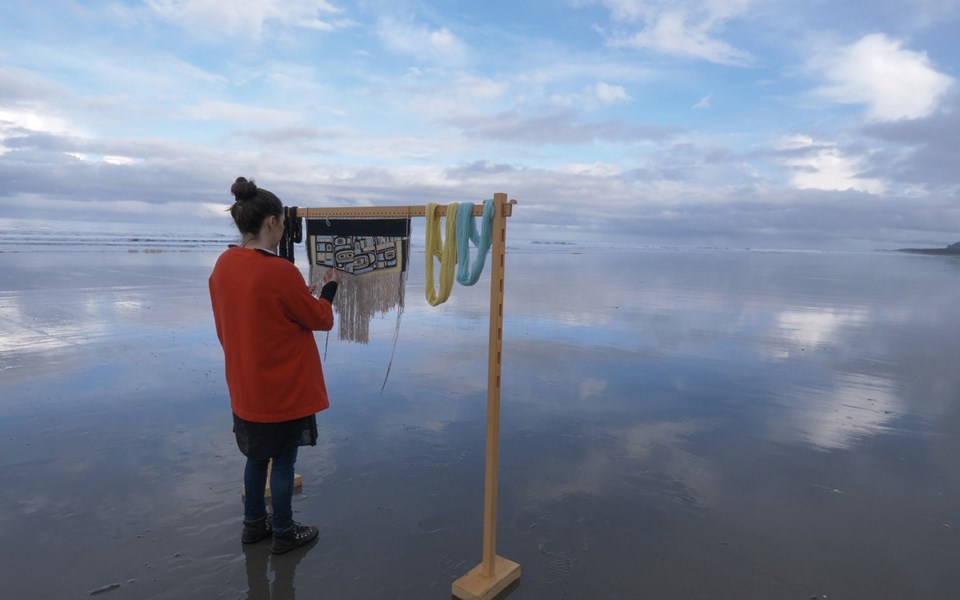Action sports movies tend to be singularly focused.
Through beautiful cinematography, they showcase the sublime, showing skilled surfers riding perfect waves, or talented snowboarders and skiers riding deep powder lines.
For local filmmaker Brian Hockenstein, the emphasis was always on getting that perfect backcountry shot.
But once he reached his early 30s and was finally shooting for top-tier snowboard film productions, he began to think of ways he could use his talent to further causes he believes in.
"Sometime around 2015 and 2016, I looked around, and I'd kind of accomplished my goal," recalls Hockenstein. "I was filming with some of the top professionals and productions in the world."
That, he explains, is when things began "to shift."
"I kind of realized I had deeper aspirations to not only be documenting these amazing feats and landscapes and scenery," he says.
"I realized I wanted to use these skills for something deeper."
Hockenstein eventually linked up with Tamo Campos, a professional snowboarder with a passion for environmental justice, who co-founded Beyond Boarding, an environmental non-profit that has worked with communities throughout the Pacific Northwest and beyond.
Once in contact, Hockenstein and Campos began developing a documentary film treatment.
Eventually, they decided to feature snowboarders Marie-France Roy, Meghann O'Brien and Campos, as well as surfer Jasper Snow Rosen. The athletes are used as a way to highlight four Indigenous communities' environmental fights.
"I feel that what's unique about this film is that it's four riders who have really unique and strong relationships with these four communities," explained Campos.
"It's not just something where we went in and filmed these stories. There was years of relationship building. And I feel like you see that via the depth of the stories."
One of the strengths of the film is that it highlights lesser-known stories.
"For us, what's kind of neat about this is we're talking about stories that are from more remote areas in B.C.," says Campos.
Snow Rosen and Campos' section of The Radicals is used to highlight the Tahltan community of Iskut's effort to stop a controversial mining project in their traditional territory.
Campos and Snow Rosen linked up with the community around a decade ago.
"We originally went there because we wanted to ride the mountains," he recalls.
"But then we met the community and ended up going in and supporting some of the blockades."
The two drew on their skillset—filmmaking—to help document the community's battle. The footage eventually made it into the film.
Snow Rosen and Campos now spend around half the year living in Iskut and working on programming the community feels is needed.
Both Campos and Hockenstein acknowledge that filmmaking in Indigenous communities can be fraught, as oftentimes crews fly in and fly out, with little thought to the long-term impact of their project.
To avoid the pitfalls, Campos and Hockenstein took a progressive approach to movie making.
Once the editing process was underway, they created a group of paid story consultants from each featured community to critique the film.
The goal was to ensure that the stories were being told in a way that the communities felt was authentic, accurate, and appropriate.
Reflecting on the process, Hockenstein said consulting directly with the communities made "the film infinitely more rich and interesting and powerful.
"It's been universal, where people are saying 'this really seems authentic,'" he said.
Interviewed by phone in the lead up to The Radicals debut, Hockenstein said that he hopes that the movie will inspire outdoor enthusiasts to think more deeply about their connection to the land and the debt they owe to Indigenous activists who fight to protect it.
"If you dig a little deeper you (can) see that a lot of this land is under threat, and that often (it's) these Indigenous communities (that) are fighting for all of us—for all of our right to use this land." The Radicals will screen at the Squamish Lil'wat Cultural Centre on Sept. 21 at 7 p.m. Tickets are $15 at www.slcc.ca.




